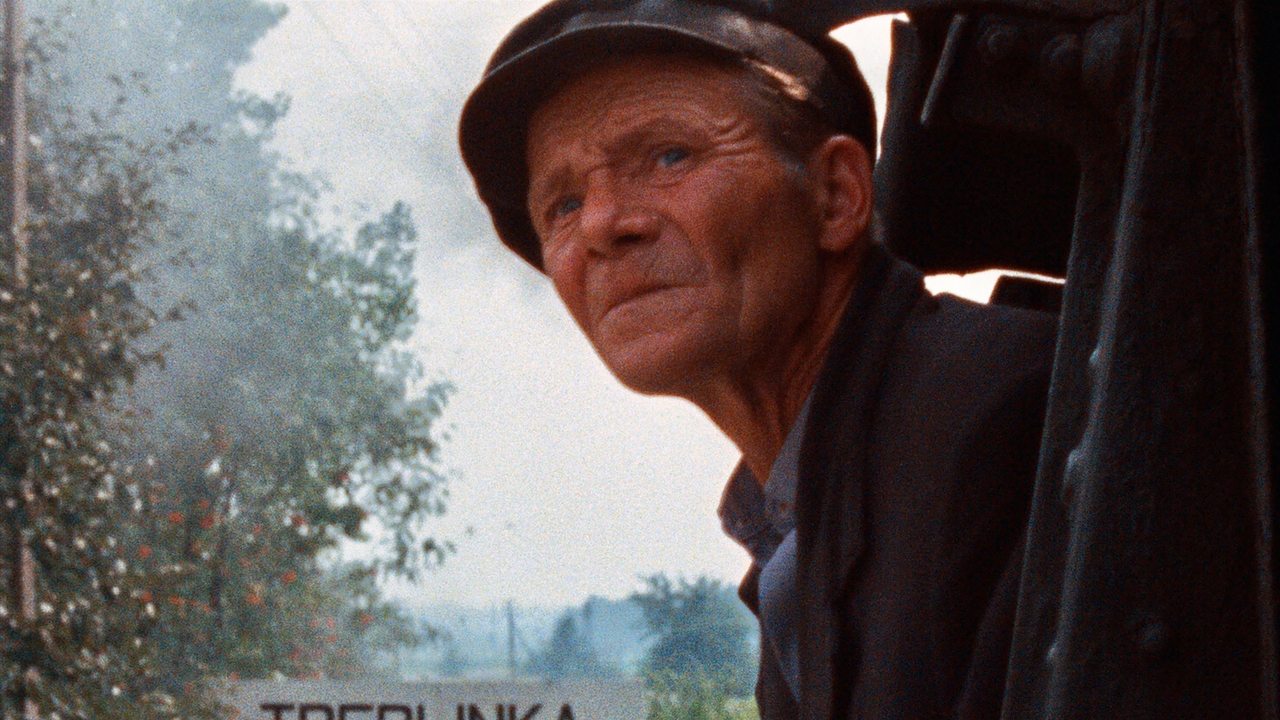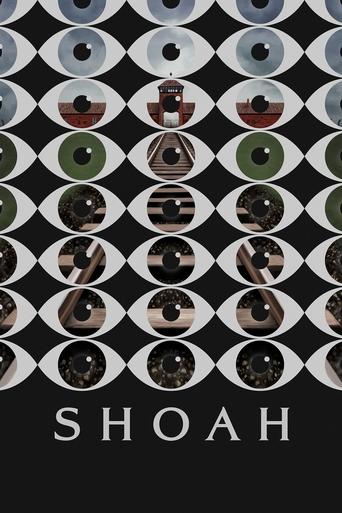

I am only giving this movie a 1 for the great cast, though I can't imagine what any of them were thinking. This movie was horrible
... View Morean ambitious but ultimately ineffective debut endeavor.
... View MoreA lot of perfectly good film show their cards early, establish a unique premise and let the audience explore a topic at a leisurely pace, without much in terms of surprise. this film is not one of those films.
... View MoreI enjoyed watching this film and would recommend other to give it a try , (as I am) but this movie, although enjoyable to watch due to the better than average acting fails to add anything new to its storyline that is all too familiar to these types of movies.
... View MoreA monumental 9½ hours epic that was 11 years in the making, Shoah is the definitive film about the Holocaust that presents a vital slice of human history without employing a single frame of archived footage in its imagery and paints an extraordinarily grim, utterly devastating & emotionally shattering account of the greatest evil of modern times through the collective testimonies of survivors, witnesses & even German perpetrators to cement its spot amongst the greatest & most essential documentaries to ever grace the film canvas.
... View MoreWith commenting this film we are going out of the movie industry to get into history and the world that it shaped. This rating concerns the importance of the theme of the movie and the effort and the enormous importance of the established work.The film draws us into the deepest, dark and dirty human intentions that led to and are even devoid of any humane sense. It is shown the downfall of modern humanity, which mimics the barbaric world of the past. The long centuries of experience appear to be insufficient to call for peace and universal existence. On the contrary, it seems that the negative trends will not disappear very soon.Although it is not shown any atrocity, the stories of witnesses of the war are enough to push our imagination to unthinkable mental pictures. It remains impossible to think and honestly to sympathize to storytellers due to lack of language in which we could understand what they experienced. We can only be able to pity them when they do not find the strength to continue their stories and to bow to their power to tell everyone about the downfall of much part of mankind.Extremely long and difficult story that requires serious approach and interest in the topic. Valuable result.http://vihrenmitevmovies.blogspot.com/
... View MoreShoah is maybe unique as a documentary on the subject as it contains on one hand the only testimonies of lone survivors of death camps or important work units in those camps, and on the other hand it also has testimonies of actors in the execution of the final solution. It's construction makes you understand all the evolution of the process over the years from the thirties to the very end of the war. The intensity of the emotions that you sense during the interviews as are the surgical precision of certain descriptions of the horrors were for me more emotional than that felt by seeing any of the motion pictures or other documentaries on the subject.Shoah is as intense as it is long, more than 9 hours of interviews without any reenactments. But you don't need those, the testimonies leave you with vivid images that will haunt you for the rest of your life.The witnesses of this documentary are now dead, Lanzmann has made sure that their testimonies be heard for the generations to come.
... View MoreDocumentary on the holocaust that used no archival footage. This is the story of what happened to the people in and around the camps as told by them. Its is a story who's truth and pain is written in each weathered face and teary eye.I have a weird relationship with this film. I originally bought the companion book for this film (collecting all of the dialog) and read that long before I could see the film at the local cinema. I then had to wait for the arrival on home video to see the film since the film played in a movie house that was a converted school house with wooden seats. the prospect of sitting on hard chairs for over ten hours (9 and a half hours of film plus breaks) was daunting. Instead I waited until it ran on local TV and I taped it and I watched it at my leisure. My attitude at the time was that it was one of the greatest films ever and the high point of documentary film making. 20 years later, seeing the film again on DVD I was actually disappointed. Don't get me wrong this is a vital and powerful film that records an important event in history. And from that point of view its a great film. The problem is that watching it with 20 years of time I didn't quite get as lost in the film as I had the first time out.The problem for me comes from the fact that this is a nine and a half hour immersion tank of a film. After a lyric opening sequence we are thrust into the remembrances with very little to go on. Survivor follows survivor in such away that all sense of time is lost, when are we? who are we listening to? After a while it all blends together. While its never boring (trust me you will sit glued to the screen for its entire running time) there is no real sense of progress, its just the events in the death camps with no little sense of when these things were happening. I understand that that is the way memory works but at the same time I wish there had been some kind of structure to it all.(I honestly thought I mixed up the DVDs at one point) Is the film worth seeing. Oh dear god yes. It is heartbreaking and touching and will probably teach you something. Best of all it is never boring, you will not check your watch during its running time. Its a masterwork, an almost perfect one.
... View More